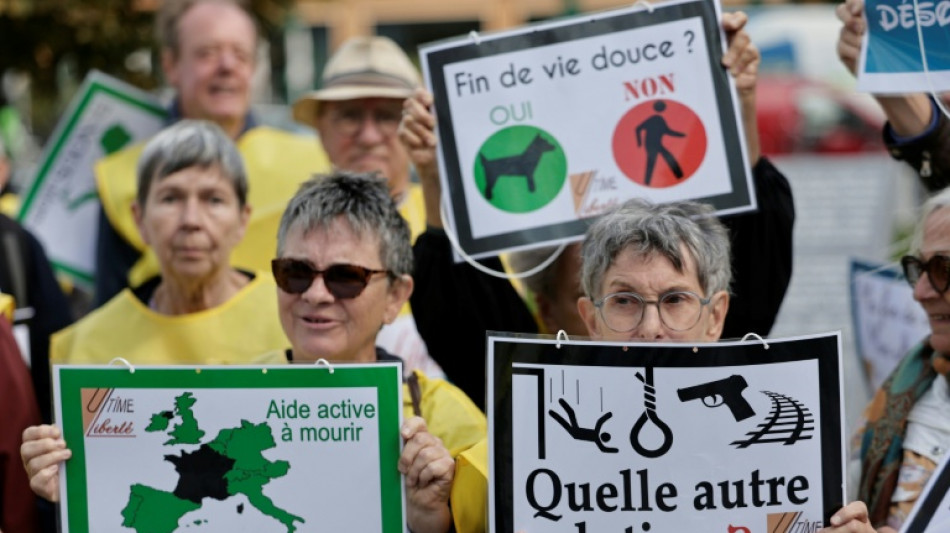

Right-to-die activists on trial in France as lawmakers debate end-of-life bill
Twelve activists accused of helping people in France to illegally obtain a euthanasia drug went on trial in Paris on Monday, as the country debates a right-to-die bill.
The defendants are members of Ultime Liberte (Ultimate Freedom), an association that fights to legalise assisted suicide and euthanasia in France.
They are accused of helping dozens of people purchase pentobarbital, a drug used for physician-assisted suicide in countries such as Belgium and Switzerland, between August 2018 and November 2020.
Many of the defendants, whose ages range from 74 to 89, are retired teachers with no criminal records.
They are charged with trafficking illegal substances and face up to 10 years in prison if convicted, although any sentences are expected to be much more lenient, given mitigating factors including their age.
In France, pentobarbital is only authorised to euthanise animals, while in the United States, the drug is used to carry out executions.
Few countries regulate assisted dying, and in many it remains a crime to help someone end their life, even in cases of severe and incurable suffering.
The debate on assisted dying has raged in France for years.
In May, the lower house of parliament approved a right-to-die bill on first reading, the initial step in a lengthy process that could grant patients medical assistance to end their lives in clearly defined circumstances.
- 'We are satisfied' -
Outside the Paris court, about 70 members of the association rallied in support of the defendants.
"We are satisfied that there is a trial so that we can bring (the issue) to public attention," Monique Denis, the wife of one of the defendants, told AFP.
"And perhaps public opinion will come out in favour of changing the law," the 69-year-old added.
Ultime Liberte's campaign goes beyond the demands of traditional pro-euthanasia associations, advocating for the right for people to control the manner and timing of their death, whether terminally ill or not.
"Suicide has been decriminalised since the Revolution but there are many laws that prevent the freedom to commit suicide, non-violent suicide," Claude Hury, head of Ultime Liberte, told AFP ahead of the trial.
She said her group wanted to help people age peacefully and die with dignity.
"Our goal is not to kill people," Hury said.
"It is to help them continue to age while being very serene about the end, provided they have this magic pill at home so they can stop when they decide to, rather than waiting for the medical diktat."
The investigation began in 2019 following a US report on a network that shipped pentobarbital worldwide in liquid form, disguised in bottles labelled "natural cosmetics".
Armed with a list of buyers provided by US investigators, French authorities carried out around one hundred searches across the country in October 2019.
The buyers were mostly elderly or seriously ill people, though some suicides appeared unrelated to age or illness.
The investigation found that some members of the association accompanied those wishing to die by giving them information on how to order the drug or even helping them obtain it.
By sharing the information only with those who requested it, the activists did not intend to "encourage or facilitate a decision to commit suicide" but rather to "accompany" that decision, said the investigating judge.
One member said he joined the association after a relative used the group to end their life.
"I am here to see if I can help in some way, so that when I'm 80 and ill, I won't have to do it behind closed doors," said the 61-year-old, releasing only his first name, Franck.
France's draft law would allow assisted dying only in an "advanced" stage of illness, which it defines as "entering an irreversible process characterised by a worsening health condition of the sick person that affects the quality of their lives".
If approved, France would join a small group of European countries that give the right to aid in dying, including Austria, Germany, Spain and Switzerland.
The trial is set to conclude on October 9.
G.Makropoulos--AN-GR



